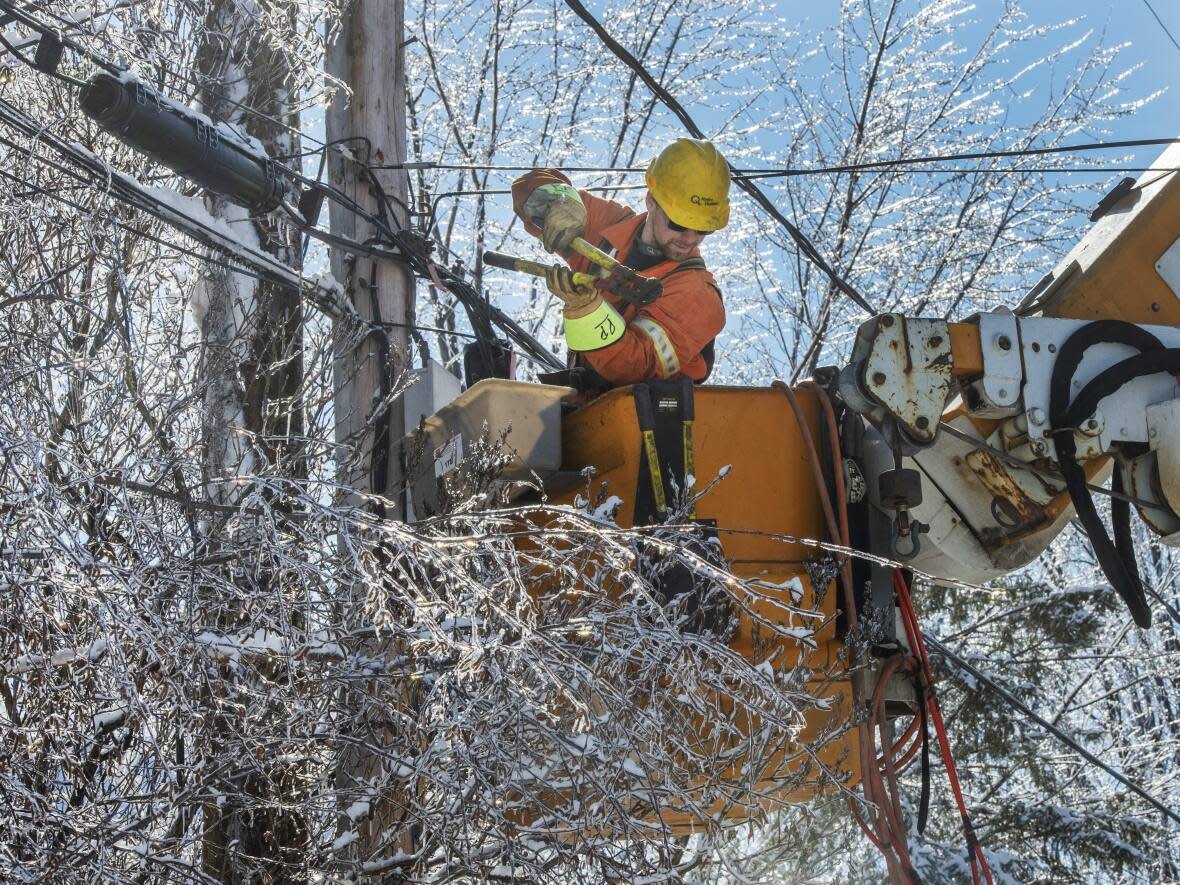Power outages longer, more frequent as Hydro-Québec confronts aging infrastructure

Are you noticing the lights going out more often — and staying out for longer?
If you answered yes, it's not just you. Power outages have become more common in Quebec over the last decade, and they are lasting longer than ever.
That was one of the findings revealed this week in Quebec's auditor general's annual report, which was presented to the National Assembly on Wednesday.
The report unveiled how Hydro-Québec, the province's state-owned energy provider, is struggling to maintain its aging infrastructure. As a result, reliability has dropped.
"There are, effectively, important shortfalls at the planning stage," Guylaine Leclerc, the auditor general, said at a media conference in Quebec City.
The data in Leclerc's report show the extent to which Hydro-Québec is failing to perform the necessary upkeep on infrastructure that is becoming increasingly unreliable.
Since 2012, there are 5,700 more unplanned outages per year across the province. These outages, Leclerc noted, are frustrating to clients, many of whom now work from home and rely on internet connections connected to home power supplies.

The outages are also affecting more people — 8.2 million in 2021 — and lasting longer. The average outage duration is now around four hours, an increase of 63 per cent since 2012, and well above the North American average.
Equipment failures are becoming more often to blame for outages.
Leclerc found that the situation is likely to become more difficult for Hydro-Québec in the coming years. A significant percentage of the utility's equipment, including power poles, is due for an upgrade.
As the infrastructure ages, it becomes more likely to fail and becomes more vulnerable to high winds and other inclement weather such as freezing rain. The situation is expected to become more common because of climate change, Hydro-Québec said in a statement.
"In the coming years," Hydro-Québec told the auditor general, "service reliability will be challenged by the impacts of climate change and aging assets. To meet these challenges, Hydro-Québec has undertaken in 2021 to make major changes to its organization, asset management and work planning and execution processes, in order to prioritize the most promising actions."
But so far, Hydro-Québec has fallen behind its planned maintenance schedule. The utility launched an outage reduction plan in 2020, but Leclerc found that only about a quarter of the work planned for 2021 has been completed.
In a separate statement, Hydro-Québec said it would "attack" the reliability issues on two fronts: it would complete preventive pole maintenance and continue to invest in vegetation control operations.
Vegetation (broken tree branches near power wires, for example) are responsible for between 40 and 70 per cent of outages per year, Hydro-Québec said.


